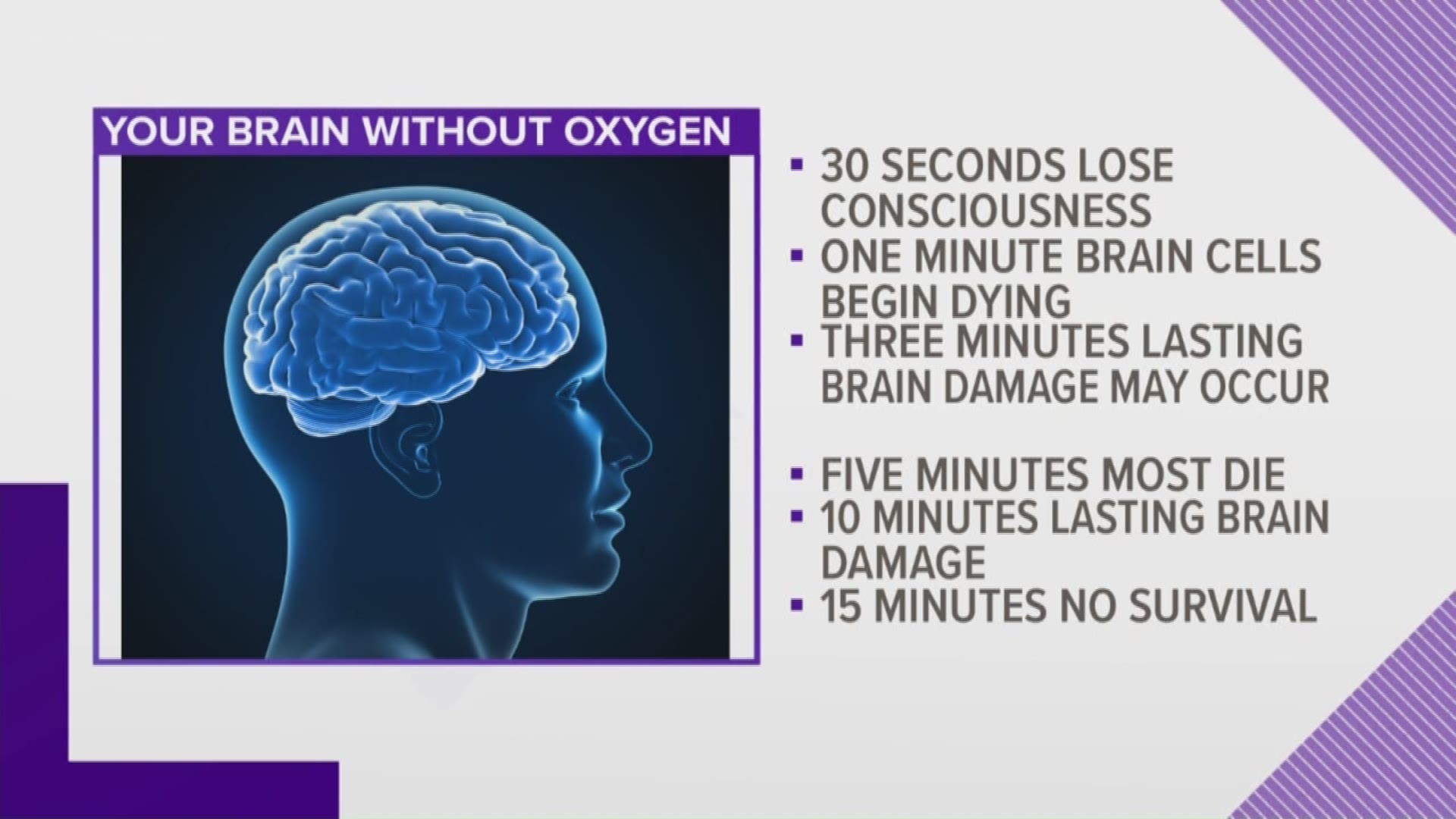One of the reasons why it's so important to keep your heart beating during cardiac arrest is because your heart is pumping oxygen to the brain.
Health Reporter Valerie Lego give a minute by minute timeline of what happens when your brain is deprived of oxygen.
Signs of oxygen deprivation
Most cases of oxygen deprivation have immediate, obvious causes:
- Strangulation, which blocks blood flow to the brain and prevents oxygen from getting to the brain's cells.
- Cardiac or respiratory arrest due to accidents, heart attacks, strokes, and similar catastrophic events.
- Choking.
- Drowning.
- Electrocution.
- Brian tumors that impede blood flow.
- Heart arrhythmias.
- Smoke or carbon monoxide inhalation.
- Extremely low blood pressure, which is common when the body goes into shock due to other injuries.
- Poisoning, including via overdose of prescription and illicit drugs or alcohol.
- Broken or compressed trachea.
- Birth-related injuries in newborns.
The early signs of oxygen deprivation include: changes in heart rate; decreased circulation in hands and/or feet; parts of the body turning blue; fainting, seeing spots or unable to think clearly; decreased judgment or awareness; seizures; and the inability to follow directions or complete complex tasks.
Effects of oxygen deprivation
The effects of oxygen deprivation are similar to those of other brain injuries. Depending on how severe the lack of oxygen the brain undergoes, extent of neuron death and quality of medical and rehabilitative care will give doctors an idea of the patient's prognosis.
With quality physical therapy, the brain can learn to compensate for damaged regions.
Long-term effects of oxygen deprivation can include:
- Damage to specific brain regions deprived of oxygen. Various brain regions tend to coordinate different functions, so some functions might be severely crippled, while others remain intact. For instance, the injury survivor might be able to understand language but unable to speak.
- Changes in mood or personality.
- Difficulty with memory, including the ability to recall facts, names of objects or people, recognize faces, learn new information, or recall autobiographical facts.
- Changes in motor skills. A number of brain regions help coordinate movement, so if these areas are damaged, you may struggle to walk, write, or engage in other functions.
- Chronic pain. When the brain is damaged, it may incorrectly process pain signals, causing you to feel pain even when there is not an injury.
- The inability to feel pain, or to correctly respond to pain signals. For instance, pain in your arm might feel like pain in your leg.
- Difficulties with impulse control. Many brain injury survivors develop addictions, aggressive behavior, or sexually inappropriate compulsions.
- Symptoms of mental illnesses such as depression or anxiety.
- Dementia-like symptoms, including confusion, memory difficulties, and signs of rapid brain aging.
►Make it easy to keep up to date with more stories like this. Download the WZZM 13 app now.
Have a news tip? Email news@wzzm13.com, visit our Facebook page or Twitter.

